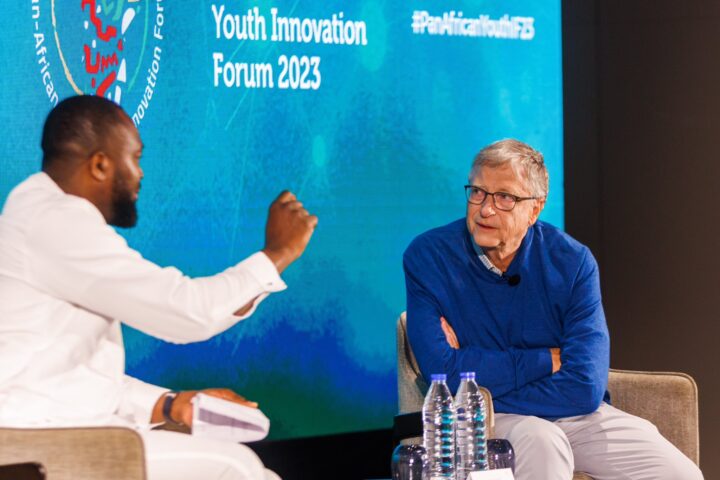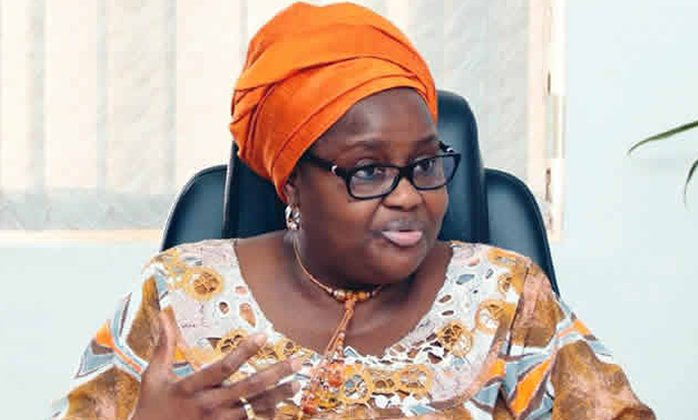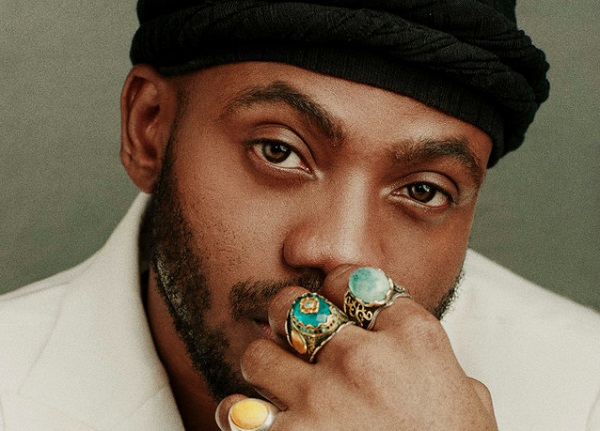BY ARUKAINO UMUKORO
Born in the heart of Lagos (Agege), bred in the rock city of Abeokuta, in Ogun state, where he hails from, he saw his bright future early as a teenager and prepared for it. When he decided to study for a diploma in computer science and then a bachelor’s degree in economics at the University of Jos, Nigeria, it seemed he understood the nexus between technology, innovation and economic development.
At 33, he co-founded and built what is regarded as Nigeria’s pioneer technology hub and innovation centre, the Co-Creation Hub (CcHub) in Lagos, which leverages technology to effect social change. By then, he had obtained an MSc in information systems and management from Warwick Business School, United Kingdom in 2007.
In 2023, he earned a PhD in innovation and economic development from the School of Business, University of Leicester. He also participated in the Innovation for Economic Development executive programme at Harvard Kennedy School (2013) and was a 2014 Draper Hills Fellow at Stanford University, US. Tijani’s career trajectory has seen him lead innovation teams in the UK, Switzerland, Nigeria and other parts of Africa.
Advertisement
To rephrase a part of Chinua Achebe’s blurb for Chimamanda Adichie’s debut novel, Half of a Yellow Sun, Bosun Tijani came (into the tech space in his early days) almost fully made, and was ready to take on the world via innovation in Nigeria’s ecosystem. He saw the challenges and opportunities. And conquer he did.
In September 2019, Tijani’s CcHub acquired Kenya’s iHub to become arguably one of the largest tech hubs in Africa, with presence in other African countries.
Now 46, Tijani has been named one of the 100 Most Influential People on the continent by New Africa Magazine. He also initiated Mark Zuckerberg’s visit for the first time in Nigeria in August 2016, among other high-profile visits from leading global tech leaders and firms.
Advertisement
In June 2023, he headlined engaging conversations with global philanthropist and co-chair of the Bill & Melinda Gates Foundation, Bill Gates, at the Pan-African Youth Forum 2023 organised by Lagos Business School and Co-Creation Hub as part of Gates’ visit to Nigeria. The focus was on the key role of youths in driving innovation and economic growth.
In August, Tijani was appointed as visiting adjunct professor at the prestigious Wits School of Governance, University of the Witwatersrand. This was a few days before he was appointed by President Bola Tinubu as Nigeria’s new minister of communications, innovation and digital economy on August 16.
“It’s an exciting time to build a bigger and better future for all Nigerians. I look forward to working with all stakeholders to raise the level of productivity across our economy through the smart application of technology. Grateful to the President @officialABAT for the opportunity to join his team working to deliver a more inclusive and prosperous Nigeria,” he wrote on his X account on August 17.
But his appointment didn’t come without controversy over his past tweets when he appeared before the Nigerian senate for screening as a minister. In a 2019 post, Tijani had expressed his reservations about the Nigerian passport and Nigeria as a nation. In another tweet in 2021, he was said to have described Nigerian senators with an unfriendly term.
Advertisement
Tijani apologised during his screening, saying that he had tweeted out of anger.
“I am profusely sorry. My commitment to His Excellency, Mr. President, and to you, Distinguished Senators, and indeed, all Nigerians, is to give my best with the same passion and conviction that I have demonstrated all my life to achieve the President’s economic and prosperity agenda,” he said.
His emergence as federal minister has also been hailed by many within and outside the tech ecosystem.
“We are proud that he is one of us,” one tech founder stated recently, noting that Tijani will improve government’s policy direction for the industry and Nigeria’s economic growth in general. Indeed, as a techpreneur and co-founder of what has become a truly pan-African tech incubator, Bosun Tijani is the proverbial round peg in a round hole. Only a few would disagree that he had rightfully earned his place.
Advertisement
On its website, Co-Creation Hub describes itself as “an innovation centre dedicated to accelerating the application of social capital and technology for economic prosperity”.
Since it was established, the CcHub has birthed other major tech hubs and founders and become a solid launch pad for many innovators, creatives and leaders in the tech ecosystem today, who are creating new solutions to diverse socio-economic challenges in Nigeria and Africa.
Advertisement
In an interview with Next Einstein Forum in 2021, Tijani stated that “every innovator must aim to be a manager too”.
“We want every business person, leader, government official to understand that the application of science and technology will change the way we do things…When we think of solving problems in education, we think innovation; when we think of solving problems in agriculture, we think innovation,” he added.
Advertisement
The new minister is showing a visionary approach with his recent call for ‘Co-creating a National Artificial Intelligence Strategy for Nigeria’.
Millions of Nigerians hold high hopes that as minister and “manager” of the federal ministry of communications, innovation and digital economy, he can also weave his magic wand in building one of Africa’s largest hubs, among other milestones, to further transform Nigeria’s budding tech ecosystem and economic development.
Advertisement
Arukaino Umukoro is a journalist and author.
Add a comment






